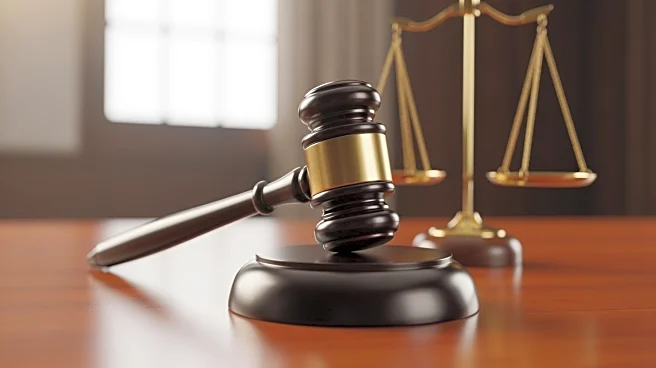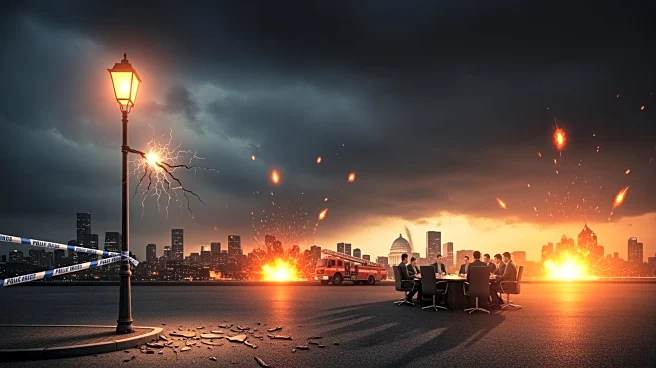What's Happening?
U.S. District Court Judge Sara Ellis has expressed serious concerns regarding the adherence of federal law enforcement agents to her order aimed at preventing violent encounters with protesters and journalists
in Chicago. The judge, appointed by President Obama, issued a temporary restraining order last week following a lawsuit by local journalists and protesters against the Trump administration. The lawsuit alleged that federal agents were targeting individuals engaged in peaceful activities, including journalists who reported being fired upon with pepper balls despite identifying themselves as press. Judge Ellis has now expanded her order to require agents involved in Operation Midway Blitz to wear body cameras, although she acknowledged logistical challenges in immediate implementation. The judge has demanded the field director of the operation appear in court to explain recent incidents involving tear gas deployment without prior warning.
Why It's Important?
The judge's actions underscore ongoing tensions between federal law enforcement and local communities, particularly in the context of protests. The expanded order aims to ensure accountability and transparency in federal operations, addressing concerns about the violation of constitutional rights of peaceful protesters and journalists. This development is significant as it highlights the judiciary's role in checking executive actions that may infringe on civil liberties. The situation also reflects broader national debates on the use of force by law enforcement and the protection of press freedom. Stakeholders such as local government officials and civil rights groups are closely monitoring the situation, which could influence future policy decisions regarding federal intervention in local matters.
What's Next?
Judge Ellis has scheduled a court appearance for the field director of the operation to provide explanations for recent actions by federal agents. This hearing could lead to further judicial directives or modifications to the existing order. The Trump administration may face increased scrutiny and pressure to comply with judicial mandates, potentially affecting its approach to handling protests in other cities. Additionally, the administration's appeal against a separate ruling blocking the deployment of National Guard troops in Chicago is pending, which could have implications for federal-state relations and the administration's strategy in addressing civil unrest.
Beyond the Headlines
The legal battle over federal intervention in Chicago protests raises important questions about the balance of power between federal and local authorities. It also touches on ethical considerations regarding the use of force and the protection of civil liberties during public demonstrations. The case could set precedents for how similar situations are handled in the future, influencing legal standards and public policy on protest management and law enforcement accountability.









